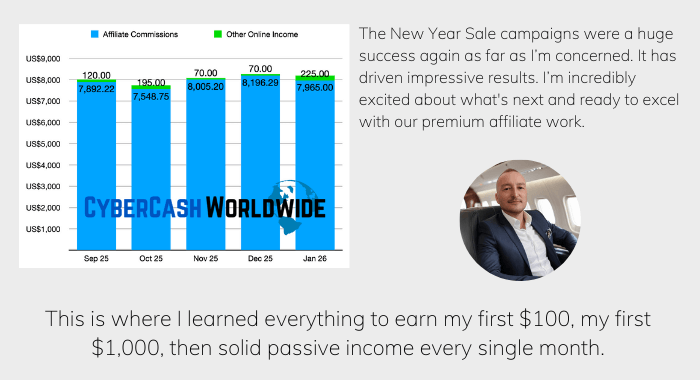You're absolutely right - blogging feels like shouting into the void these days. Social media algorithms buried long-form content years ago, attention spans shrunk to TikTok-sized bites, and everyone claims they're too busy to read anything longer than a tweet. Yet here I am, still publishing posts to my corner of the internet, still crafting sentences that maybe three people will finish reading. The numbers don't lie: blog readership has plummeted, comment sections gather digital dust, and most "successful" blogs now focus more on selling courses than sharing ideas.
But here's what the death-of-blogging crowd misses completely. Writing consistently teaches you to think clearly in ways that no other medium does. Your brain starts organizing thoughts differently when you know you'll need to explain them coherently to strangers on the internet. The discipline of regular publishing creates a feedback loop between your thinking and your expression that makes both sharper over time. Most people who quit blogging never experienced this transformation because they gave up before the magic happened.

The Real Reason: Numbers Don't Matter
Traffic statistics become meaningless when you realize blogging was never about mass consumption. Traditional media trained us to think success means reaching millions, but personal publishing operates on completely different principles.
Your blog doesn't need to compete with Netflix for attention - it serves a fundamentally different purpose in the information ecosystem. The internet's beauty lies in its ability to connect specific minds across time and space, not in creating another viral sensation that everyone forgets next week.
Quality readers matter more than quantity will ever will.
One person who truly connects with your writing creates more value than a thousand casual browsers who bounce after ten seconds. That single reader might change their career based on something you wrote, or solve a problem they've struggled with for months. The depth of connection trumps the breadth of reach every single time, especially when you're trying to build something meaningful rather than just chase vanity metrics.
Your future self becomes your most important reader.
Blogs function as external memory systems that let you track how your thinking evolves over years. Going back to posts you wrote two years ago reveals patterns in your intellectual development that you'd never notice otherwise.
The ability to search your own thoughts and reference your past insights makes blogging incredibly valuable even if nobody else ever reads a word.
Niche topics find their people eventually.
The internet's long tail means even the most obscure subjects have devoted followers somewhere in the world. Your post about 15th-century bookbinding techniques or debugging obscure database errors will find exactly the right person at exactly the right moment.
Search engines connect specific problems with specific solutions across decades, making every well-written post a potential time capsule of value.
Regular publishing creates accountability that social media lacks.
Blog posts establish a permanent record of your commitments and predictions. This permanence makes you think more carefully about what you publish and follow through on ideas you claim to believe in.
The public nature of blogging forces intellectual honesty in ways that private journaling never could.
The Compound Interest of Consistent Writing
Financial advisors preach about compound interest, but nobody talks about how the same principle applies to regular publishing. Each blog post builds on previous ones, creating a body of work that becomes more valuable than the sum of its parts.
Readers who discover your blog don't just read your latest post - they often dive deep into your archives, consuming months or years of content in concentrated bursts. This retrospective reading pattern means older posts continue generating value long after publication, unlike social media content that dies within hours.
Your writing voice develops authenticity through repetition.
Forcing yourself to publish regularly strips away pretension and reveals your natural communication style. The first dozen posts feel awkward and overly formal, but consistency eventually teaches you to write like you talk. This authentic voice attracts readers who resonate with your specific way of seeing the world, creating genuine connections that marketing tactics never achieve.
Complex ideas require multiple posts to fully develop.
Social media rewards hot takes and oversimplified opinions, but real insights need space to breathe and grow. Breaking down complicated topics across several related posts lets you explore different angles without overwhelming readers.
The interconnected nature of blog posts creates a web of ideas that readers absorb gradually, leading to deeper understanding than any single piece of content could provide.
Old posts solve new problems through unexpected connections.
Something you wrote about project management three years ago suddenly becomes relevant to someone starting their first business today. The search ability means your past insights continue finding new applications as circumstances change and new readers discover your work.
This delayed gratification aspect of blogging rewards patience in ways that instant-feedback platforms never could.
Building a searchable knowledge base serves multiple purposes simultaneously.
Your blog becomes a reference library for your own work, a portfolio for potential collaborators, and a resource for anyone facing similar challenges. This multi-purpose nature makes blogging incredibly efficient compared to platforms that only serve one function.
The same content that helps you think through problems also demonstrates your expertise to people who might want to work with you.

The Thinking Benefits Nobody Talks About
Most blogging advice focuses on growing readership, but the cognitive benefits of regular writing far outweigh any external validation. Writing forces you to confront the gaps in your knowledge and organize scattered thoughts into coherent arguments.
The process of translating internal monologue into readable prose reveals assumptions you didn't know you were making and strengthens logical connections between ideas. This mental exercise becomes addictive once you experience how much clearer your thinking becomes.
Explaining concepts to others clarifies them for yourself first.
Teaching through writing exposes weaknesses in your understanding that internal contemplation never reveals.
When you try to explain something complex in simple terms, you discover which parts you truly grasp and which parts you've been glossing over. This forced clarity makes you a better thinker in every area of life, not just the topics you write about directly.
Regular deadlines create productive pressure that improves decision-making.
Committing to publish weekly or monthly forces you to make choices about what ideas deserve development and which ones should be abandoned. This editorial discipline translates into better prioritization skills in other areas of your life.
The practice of finishing and shipping written work builds momentum that carries over into other creative projects.
Writing about problems often leads to solving them during the process.
The act of describing a challenge in detail frequently reveals solutions that weren't obvious before you started writing. Something about the linear nature of written explanation helps your brain work through logical steps more systematically.
Many of my best insights have emerged while trying to explain something complicated to an imaginary reader who needed more context than I initially planned to provide.
Developing your own intellectual property protects against groupthink.
Regular writing forces you to form independent opinions rather than simply absorbing and repeating other people's ideas.
The pressure to create original content makes you look for novel angles and contrarian perspectives that social media echo chambers discourage. The intellectual independence becomes increasingly valuable as information sources become more polarized and algorithmic.
The Professional Advantages of Persistent Publishing
Career benefits from blogging compound slowly but inevitably for people who stick with it long enough. Employers and clients increasingly evaluate candidates based on their online presence and demonstrated expertise rather than just formal credentials.
Your blog serves as a living portfolio that showcases not just what you know, but how you think and communicate. This organic demonstration of competence often proves more convincing than resumes or portfolios that anyone with enough time and money could assemble.
Industry recognition comes to consistent voices rather than occasional contributors.
People who publish regularly become known quantities in their fields, even if their individual posts don't go viral. Conference organizers, podcast hosts, and collaboration partners gravitate toward people whose expertise they've observed over time through steady content creation.
This gradual reputation building proves more sustainable than attention-grabbing stunts that burn bright and fade quickly.
Client acquisition happens naturally when prospects already trust your expertise.
Potential customers who've read your blog for months arrive pre-sold on your competence and approach. The sales process becomes consultation rather than persuasion because they already understand your methodology and philosophy. This warm lead pipeline makes business development much easier than cold outreach or paid advertising campaigns.
Speaking opportunities multiply when event organizers know your communication style.
Conference planners who've read your writing know exactly what kind of speaker you'll be and which topics you handle best. Your blog posts serve as audition tapes that demonstrate your ability to explain complex subjects clearly to diverse groups. This reputation for clear communication opens doors that traditional networking rarely reaches.
Collaboration requests come from people who genuinely appreciate your perspective.
Other professionals who follow your work reach out with partnership ideas that align naturally with your interests and expertise. These organic collaborations tend to be more successful than forced partnerships because they're based on genuine intellectual compatibility.
The quality of professional relationships improves dramatically when they start from mutual respect rather than transactional necessity.
The Long Game That Social Media Players Miss
Social media platforms come and go, but domain names last forever if you keep paying the hosting bills. Building your digital presence on rented land means losing everything when algorithms change or platforms disappear entirely.
Blogs provide permanence and control that social media accounts never offer, making them better long-term investments of creative energy. The content you publish today on your own domain will still be findable and readable decades from now, assuming the internet survives in recognizable form.
Platform independence protects your work from algorithmic changes.
Facebook's reach plummeted when they prioritized friend content over business pages, and Twitter's algorithm decides which tweets get seen by your own followers.
Blog readers who subscribe to your RSS feed or email list see everything you publish without third-party interference. This direct relationship with your readers provides stability that social media platforms actively undermine to maximize their own engagement metrics.
Search engine optimization rewards comprehensive content over bite-sized posts.
Google's algorithms increasingly favor in-depth articles that thoroughly explore topics rather than shallow content that skims the surface.
Long-form blog posts have multiple opportunities to rank for related keywords and answer various questions within the same piece. This SEO advantage helps your content find new readers years after publication, unlike social media posts that become invisible within days.
Email subscribers represent the most valuable form of online relationship.
People who trust you enough to give you direct access to their inbox demonstrate a level of commitment that social media followers never match. Email lists survive platform changes, algorithm updates, and corporate acquisitions that destroy other forms of online connection.
The ability to reach your readers directly makes blogging sustainable even when other marketing channels become expensive or unreliable.
Digital ownership creates options that rented attention never provides.
Your blog archives become intellectual property that you own completely, unlike content posted to social platforms that technically belongs to the hosting company. This ownership allows you to repurpose, republish, and monetize your work in whatever ways make sense for your situation.
The optionality that comes with owning your content distribution method provides flexibility that platform-dependent creators lack entirely.
The Creative Satisfaction That Keeps Writers Writing
Beyond all the practical benefits and strategic advantages, blogging satisfies creative urges that other forms of expression rarely match.
The combination of writing, publishing, and reader interaction creates a complete creative loop that feels more fulfilling than private journaling or professional writing that gets filtered through editors and corporate messaging. This creative satisfaction becomes self-sustaining motivation that makes the practical benefits feel like bonuses rather than primary reasons to continue.
The internet promised to democratize publishing, and blogs deliver on that promise better than any other medium has managed since. You control the entire process from conception to publication without needing approval from gatekeepers or paying for distribution. This creative freedom attracts people who value intellectual independence over mass market appeal, creating a self-selecting group of readers who appreciate depth over surface-level entertainment.
Writing regularly also scratches the human need to leave something behind that might outlast our physical presence. Blog posts become monuments to our thinking at specific moments in time, creating a record of intellectual growth that families and friends could potentially access long after we're gone. This legacy aspect of blogging adds weight and meaning to the practice that social media posts rarely achieve, no matter how clever or popular they become in the moment.
The compound nature of creative work means that every post makes the next one easier to write and more likely to resonate with readers who've been following your development. This momentum becomes addictive for people who enjoy the craft of writing and the challenge of explaining complex ideas clearly. The satisfaction of hitting publish on something you're genuinely proud of never gets old, especially when you know it might help someone solve a real problem someday.


